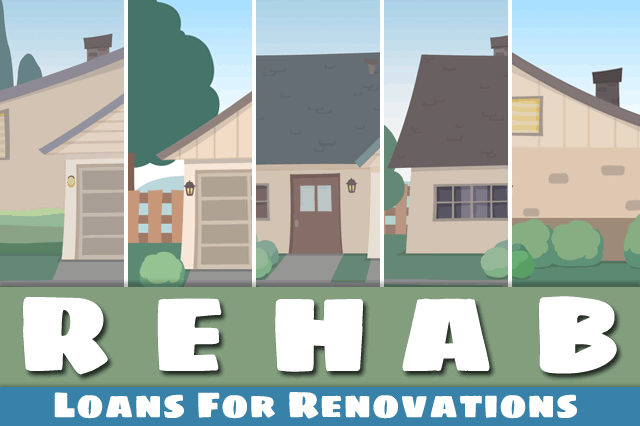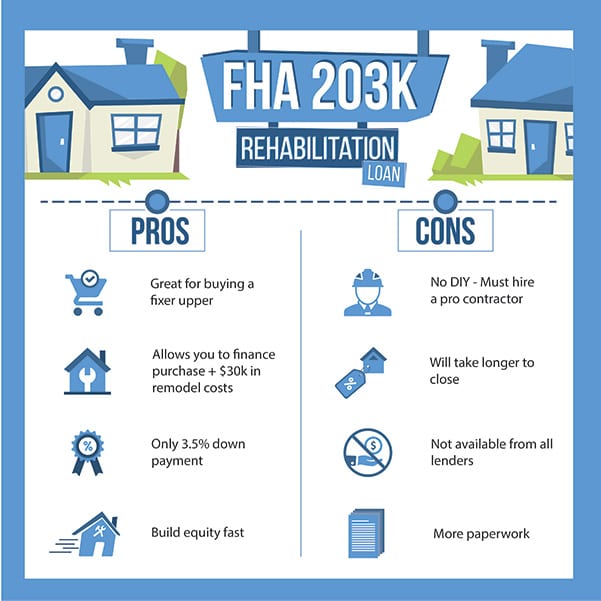Advanced practice rehab nurses can take on additional duties, as allowed by their advanced practice nursing license, which allows them to perform extensive evaluations, diagnosis, and treatment with more autonomy. The Association of Rehabilitation Nurses specifies that advanced practice rehabilitation nurses are in an especially good position to use cost effective, high quality client care. Rehab nurses might be determined by other specializations and functions that consist of: Case management, Community health, Consultant, Nurse clinician, Nurse educator, Rehab admissions liaison nurse, Scientist, Registered Nurses can begin in rehabilitation nursing with a bachelor's degree in nursing. Continuing education courses are offered that introduce nurses to the basics of rehab nursing.
Although master's degrees specific to advanced practice rehabilitation nursing aren't offered, nurses can pursue other advanced degrees, such as: Master of Health Science (MHS) Degree in Rehab Sciences, Executive Masters in Rehabilitation Administration, Ph. D. in Rehab Science, The more typical choice for innovative practice nurses is to pursue an MSN or DNP program, and customize the nurse specialist or medical nurse expert medical practicum to rehabilitation. Nurses can pick the location in which they want to focus by selecting an advanced program particular to a main patient population focus of interest, such as gerontology, pediatrics, or adult care, and acquiring medical experience in corrective care.
The requirements to write the accreditation examination are a current, unlimited license as a RN, along with one of the following: 2 years of practice as a RN in rehab nursing within the five years prior to using, One year of practice as a RN in rehab nursing within the five years prior to using and one year of post-baccalaureate education in nursing, The examination is offered to be taken during two, month-long test durations each year through Castle Worldwide Screening Centers. The test has 175 concerns, covering 4 major locations: Functional health patterns: Theories, physiology, assessment, standards of care, and interventions (68%)Ethical, legislative, financial, and legal issues (15%)The rehab group and helping clients re-enter their community (12%)Rehab nursing models and theories (5%)Accreditation is valid for 5 years.
The Association of Rehabilitation Nurses (ARN) supplies resources for all Registered nurses who operate in rehab. The association publishes the Rehab Nursing Journal and uses research grants through the Rehab Nursing Foundation. The ARN has chapters located throughout the US.The Rehab Nurse Organizers' Network supports nurses who collaborate and/or handle cases for insurer. Nurses working in heart or lung rehab might have an interest in the American Association of Cardiovascular and Pulmonary Rehabilitation (AACVPR). Stays of 24 to 60 days are common at competent nursing centers. As in skilled nursing facilities, inpatient rehab centers provide meals, individual care, and support with day-to-day activities. Rehabilitation at an inpatient rehabilitation center may be covered by Medicare, but your parent might need to pay a deductible. Medicare protection might include shared rooms, meals, medications, nursing care, and different therapies. When choosing the best rehab alternative for your senior liked one, it is necessary to discuss rehabilitation goals and needs with their medical professional. Here are a couple of crucial factors to consider: Programs at proficient nursing facilities and rehabilitation centers vary in intensity.
Is your member of the family encouraged and identified to return home as quickly as possible? More extensive treatments at a rehab center typically mean a much shorter stay at the rehabilitation center. Senior adults who have intricate rehabilitation requirements might benefit from day-to-day access to a doctor and different experts at an inpatient rehab center. On the other hand, those at competent nursing facilities normally see a doctor one to 3 times a week. Inpatient rehab centers often count on registered nurses who focus on rehabilitative services. Knowledgeable nursing personnel usually consist of nursing assistants certified in long-term care who are supervised by a certified practical nurse or signed up nurse.
The Of How Much Will Bcbs Pay For Addiction Rehab
Program intensity1 to 2 hours of day-to-day therapy, At least 3 hours of day-to-day therapy, Average length of stay24 to 60 days10 to 35 days, Access to doctors, Physician visits 1 to 3 times a week, Daily physician check outs, Staffing, Nursing assistants certified in long-term care who are monitored by registered nurses or certified practical nurses, Registered nurses who concentrate on rehabilitative care, Expenses and Learn more here Medicare protection, May be totally or partially covered by Medicare, depending on several elements, including length of stay, May be partly covered, depending upon facility; may require a deductible, Medicare. gov. Inpatient medical facility care. https://www.
Rehabilitation nurses work with clients who are recuperating from persistent diseases, injuries or disabilities. Nurses assist patients shift to additional independence, construct strength and mobility, and adjust to their scenarios in order to look after themselves as much as possible - what are some physical rehab performance issues occupational therapy. Rehab nurses operate in medical facilities, transitional care centers, and in clients' houses. They take a look at clients holistically to finest care for their patients, offering assistance https://ventsmagazine.com/2020/09/09/is-residential-or-day-treatment-the-right-choice-for-eating-disorders/ physically, mentally, and spiritually, to ensure the patients are prepared to take care of themselves when they require to. This means nurses have to be patient and caring, but ought to also know when to press their clients in order for them to progress and recuperate.
A typical location of confusion for those looking for and examining care choices for an enjoyed one is the difference in between experienced nursing and senior rehabilitation. Although the terms are sometimes utilized interchangeably, skilled nursing facilities (SNFs) and rehab centers use different services and bring different expenses. In a nutshell, rehab facilities offer short-term, in-patient rehabilitative care. Competent nursing facilities are for individuals who require a greater level of treatment than can be provided in an assisted living neighborhood. A few of the misunderstanding emerges from the truth that proficient nursing centers are often utilized for short-term rehabilitation stays - addiction rehab center who we are. That's the fast explanation, but let's dig in a little deeper.

These facilities are not thought about irreversible residential establishments. When a patient leaves a rehabilitation center, they might return home and receive in-home assistance, or they might look for an assisted living home or other permanent domestic options like a senior living community. Rehabilitation centers are managed and licensed by the state and federal government. They must likewise meet certain state and local guidelines. Remaining at these facilities is covered by Medicare for up to 100 days. The staff of a rehab center might consist of signed up nurses, licensed useful nurses, employment nurses, speech pathologists, physiotherapists, audiologists, a medical director and other customized medical staff as needed.
These conditions may require physical therapy, administration of antibiotics, intravenous injections of medication or other medical care. It's helpful to know that proficient nursing explains the type of service offered. Skilled nursing is a level of care that need to be offered by skilled people, such as registered nurses (RNs) and physical, speech and occupational therapists. The requirement for competent nursing services doesn't instantly require positioning in a home, due to the fact that proficient nursing services are offered in a variety of senior care settings, which may include one's house. A certified physician supervises each client's care and a nurse or other physician is often on the premises.

How Long Does A Typical Occupational Therapy Evaluation Take In Inpatient Rehab - Questions
These services can be necessary over the brief term for rehabilitation from a disease or injury, or they might be needed over the long term for patients who require care on a frequent or ongoing basis due to a chronic medical condition. Examples of skilled nursing services consist of wound care, intravenous (IV) treatment, injections, physical treatment, and tracking of important indications and medical equipment. does a 20 year old who uses marijuana need rehab or talk therapy. If you or an enjoyed one requires short-term rehabilitation or long-term health services in Redding, Connecticut, you can feel positive understanding Ridge Crest University hospital at Meadow Ridge provides the greatest quality skilled nursing care and maintains a general 5-Star rating in all categories from the Centers for Medicare & Medicaid Providers.
Ridge Crest is close to numerous location hospitals, consisting of Danbury Medical facility and Norwalk Medical facility, and preserves enduring connections with each that will alleviate your shift. We'll work with your doctor to supply customized treatment and our lovely location offers its own unique sort of restorative treatment. Did you know Ridge Crest accepts direct admission on a month-to-month basis with no entrance fee for both experienced nursing and rehab? Discover more by calling 1-866-761-8510 or filling out the form below.
To regain independence and lifestyle - these are the priorities for you or a liked one after a stroke, or spine, brain or orthopaedic injury. For those who certify, research proves that people treated in intense inpatient rehab facilities (IRFs), like Wake, Med Rehab Health Center, have much better long-lasting medical results than those dealt with in retirement home or proficient nursing centers (SNFs). The following info will assist you and your household comprehend the benefits of rehab medical facility care. Feels like a health center system, but it is an acute inpatient rehab facility (IRF) that is accredited as a medical facility.